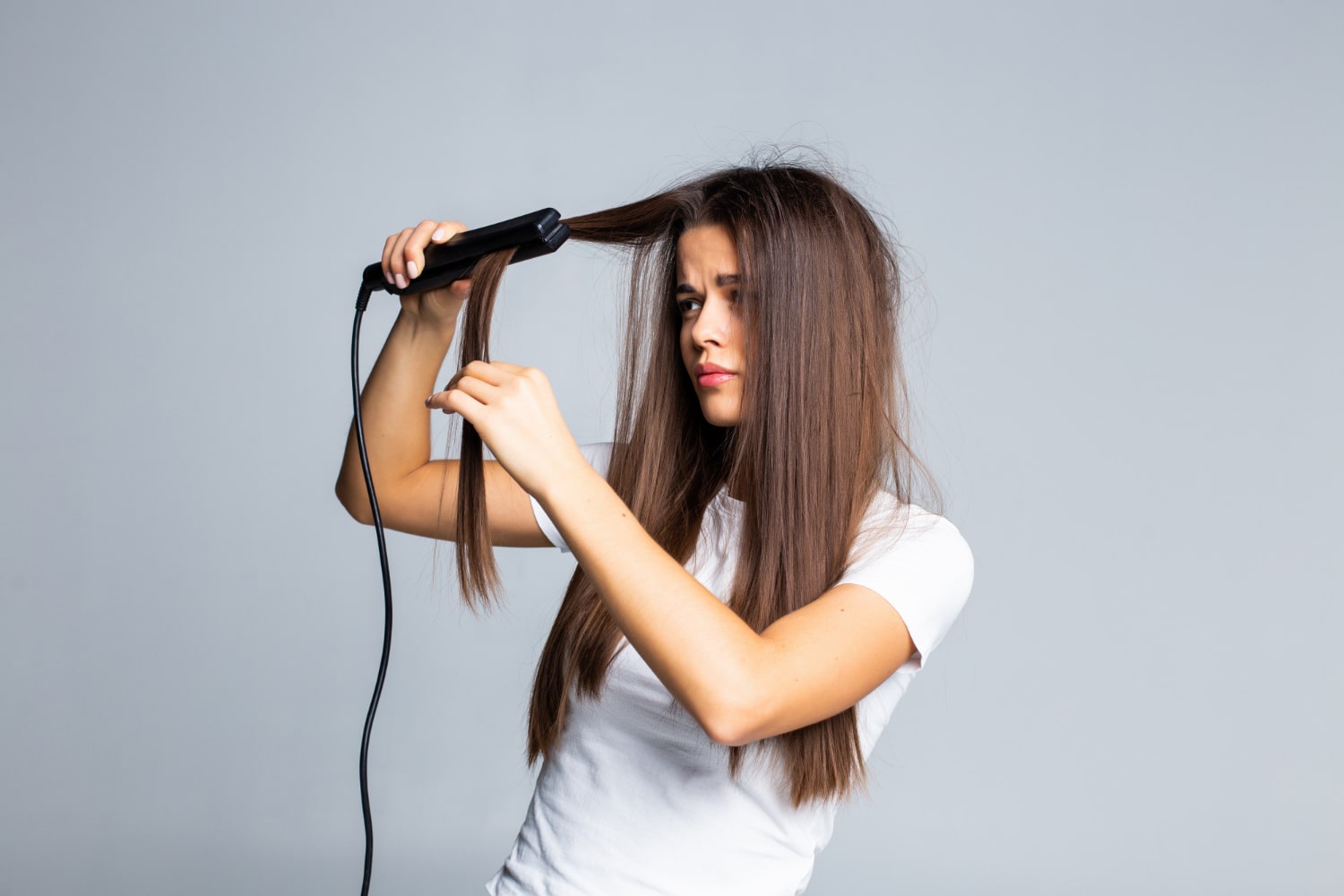 |
| Chemical hair straighteners |
The use of chemical hair straighteners has been the subject of growing concern following the publication of a study revealing a correlation between these products and an increase in cases of uterine cancer, especially among African American or black women.
The study, known as “The Sister Study” and conducted by the National Institute of Environmental Health Sciences, has sparked a series of lawsuits against major cosmetics brands by more than 2,000 women. These lawsuits allege that chemical relaxers contain ingredients that disrupt the endocrine system, which could have negative health consequences. Although the study was not designed specifically to investigate the risk of uterine cancer, the results revealed an association between the use of relaxers and this type of cancer in African American or black women. Also Read: Sitting for so long at work may increase mortality riskAccording to Dr. Amanda Hercules-Smith of St. Clair Health, women who used relaxers had a doubled risk of developing uterine cancer compared to those who had never used them. Uterine cancer, which accounts for 3% of all cancer cases in the United States, affects about 66,000 women a year. However, the risk appears to be even higher for African American or black women, especially those who use chemical hair straighteners regularly. The study has raised concerns about the safety of these products, although Dr Hercules-Smith cautions that it cannot be said that relaxers directly cause uterine cancer. However, frequency of use could influence the risk. Consequently, women, especially those with a family history of breast or uterine cancer, are urged to consider their options and reduce the use of chemical relaxers. Garfield cosmetology educator Tamiah Bridgett-Alexander shared her personal experience, having undergone a hysterectomy at age 39 after decades of using chemical relaxers. Although she acknowledges that uterine fibroids run in her family, Bridgett-Alexander notes that her long-term use of relaxers could have contributed to her condition. What the WHO says about chemicals and cosmeticsDespite the evidence and medical warnings, Bridgett-Alexander sees a worrying trend of women returning to using chemical relaxers, despite the known risks. “You don't know the impact of any of this,” she says. These findings underscore the need for more research into the effects of chemical relaxers on women's health, especially in minority communities who may be at higher risk. In the meantime, experts recommend caution and exploring safer hair care alternatives. The World Health Organization (WHO) provides information and guidelines on the safety of chemicals and cosmetics to protect public health. These guidelines are based on risk assessment and up-to-date scientific evidence. WHO works in collaboration with international experts and regulatory agencies to establish standards and regulations that ensure consumer safety. WHO guidelines include evaluation of ingredients, identification of potential adverse health effects, and determination of safe exposure levels. In addition, WHO promotes the regulation and proper labeling of cosmetic products to inform consumers about possible risks and necessary precautions. The organization also advocates for the removal of harmful and dangerous ingredients from cosmetic products and promotes the use of safer and more sustainable alternatives. Through its work, WHO seeks to protect the health of consumers and promote safe practices in the cosmetics and chemicals industries. |

Comments
Post a Comment